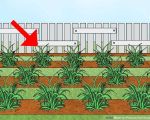How to Deal with Lawn Pests: A Comprehensive Guide
If you’re a homeowner or gardener, you’re probably familiar with the challenge of dealing with lawn pests. These pesky intruders can quickly ruin your beautiful green space, but the good news is that there are effective ways to tackle them. In this article, I’ll walk you through the best strategies for preventing and controlling lawn pests, ensuring that your lawn stays healthy and vibrant all year long.
1. Identifying Common Lawn Pests
Before you can deal with lawn pests, it's important to know which ones are causing trouble in your yard. Here are some of the most common lawn pests in the United States:
- Grubs: These are the larvae of beetles and are known for damaging grass roots, leading to patches of dead grass.
- Chinch Bugs: Chinch bugs are small insects that suck the juice from grass blades, leaving behind yellow patches.
- Ants: While they don’t directly harm grass, ants can create mounds that disrupt the soil and damage the lawn’s root system.
- Armyworms: These pests feed on the grass blades, leaving unsightly damage in their wake, especially in the late summer.
Once you identify which pests are invading your lawn, you can select the most effective treatment options. Let’s explore the methods for dealing with these pests.
2. Natural Ways to Control Lawn Pests
If you're looking for eco-friendly solutions to control pests, there are several natural methods that can help reduce or eliminate pest populations on your lawn:
- Neem Oil: This natural pesticide is safe for plants, animals, and humans. It disrupts the growth of pests like grubs, aphids, and beetles, reducing their numbers.
- Beneficial Nematodes: These microscopic worms attack and kill harmful lawn pests such as grubs. They're safe for your grass and other beneficial creatures in your garden.
- Diatomaceous Earth: Made from fossilized algae, diatomaceous earth works by dehydrating pests when they come into contact with it. It’s safe for humans, pets, and beneficial insects but deadly to pests like ants and fleas.
- Predatory Insects: You can introduce beneficial insects such as ladybugs, lacewings, or predatory beetles to your lawn. These insects prey on harmful pests like aphids and mites, providing natural pest control.
3. Chemical Pest Control: When to Use It
In some cases, natural methods may not be enough to control a severe pest infestation. In these situations, chemical pesticides can be a more effective solution. However, it’s important to use them wisely and responsibly:
- Choose the Right Pesticide: Always select a pesticide that targets the specific pest you're dealing with. Some pesticides can harm beneficial insects and pollinators, so choose products that are selective in their action.
- Follow Instructions Carefully: When applying chemicals, always read and follow the manufacturer’s instructions to avoid damaging your lawn or the environment.
- Apply at the Right Time: For the best results, apply pesticides early in the morning or late in the evening, when beneficial insects are less active.
4. Preventing Future Lawn Pests
Preventing pests from infesting your lawn in the first place is the best way to avoid damage. Here are some tips to keep pests at bay:
- Healthy Soil: Lawn pests are more likely to invade weak, stressed grass. By maintaining healthy soil through aeration, fertilization, and proper irrigation, your lawn will be better equipped to resist pest attacks.
- Proper Lawn Care: Regularly mow your lawn, water it deeply but infrequently, and remove any debris that can harbor pests. Healthy grass is less appealing to pests and more resistant to damage.
- Use Pest-Repelling Plants: Some plants naturally repel pests. For example, planting garlic, chives, or lavender near your lawn can help keep certain insects away.
5. When to Call a Professional
While DIY pest control methods are effective for most homeowners, sometimes it’s best to bring in the experts. If your lawn is dealing with a severe infestation or if you’re unsure how to properly treat the pests, consider hiring a lawn care professional. A certified pest control service can provide tailored treatments to address specific pest problems, ensuring long-term health for your lawn.
If you’re looking for reliable lawn care services, check out Lawn Care Services. They can help you with pest control, lawn maintenance, and more to keep your yard looking its best all year round.
By staying proactive with your lawn care routine and using the right pest control methods, you can keep your lawn free from pests and maintain a beautiful, healthy outdoor space. Remember, the key to pest control is consistent care and timely action. Whether you prefer natural methods or chemical treatments, there’s a solution for every lawn.








